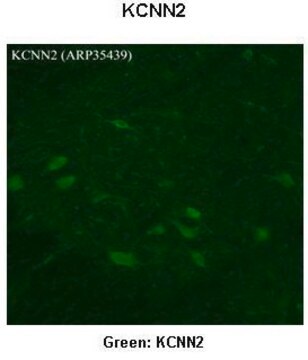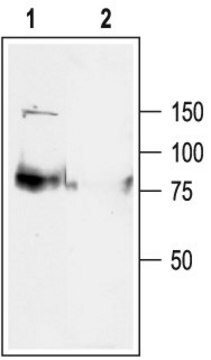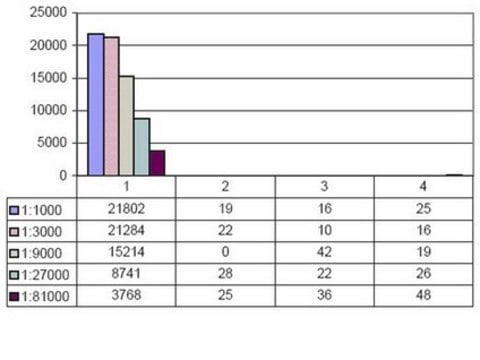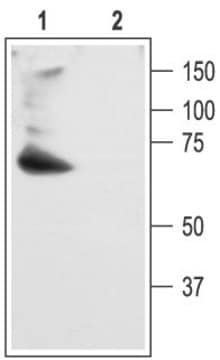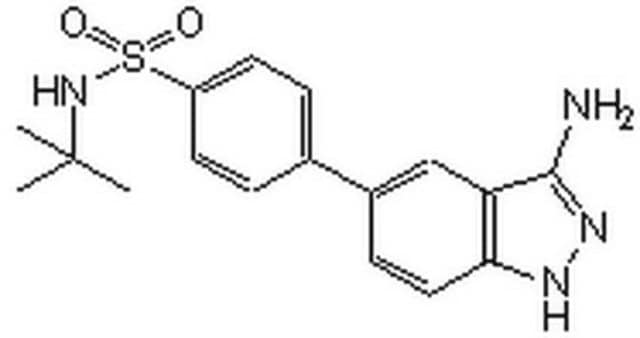P0483
Anti-Potassium Channel SK2 antibody produced in rabbit
affinity isolated antibody, lyophilized powder
Synonym(s):
Apamin-Sensitive Conductance Ca2+-Dependent K+ Channel, KCa2, Kcnn2, SKCa2
About This Item
Recommended Products
biological source
rabbit
conjugate
unconjugated
antibody form
affinity isolated antibody
antibody product type
primary antibodies
clone
polyclonal
form
lyophilized powder
species reactivity
human, rat
technique(s)
western blot (chemiluminescent): 1:200 using rat brain membranes
UniProt accession no.
storage temp.
−20°C
target post-translational modification
unmodified
Gene Information
rat ... Kcnn2(54262)
General description
Immunogen
Application
Biochem/physiol Actions
Physical form
Disclaimer
Not finding the right product?
Try our Product Selector Tool.
Storage Class Code
11 - Combustible Solids
WGK
WGK 2
Flash Point(F)
Not applicable
Flash Point(C)
Not applicable
Certificates of Analysis (COA)
Search for Certificates of Analysis (COA) by entering the products Lot/Batch Number. Lot and Batch Numbers can be found on a product’s label following the words ‘Lot’ or ‘Batch’.
Already Own This Product?
Find documentation for the products that you have recently purchased in the Document Library.
Our team of scientists has experience in all areas of research including Life Science, Material Science, Chemical Synthesis, Chromatography, Analytical and many others.
Contact Technical Service
